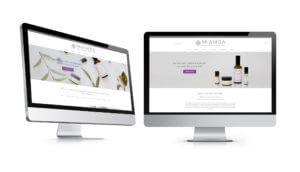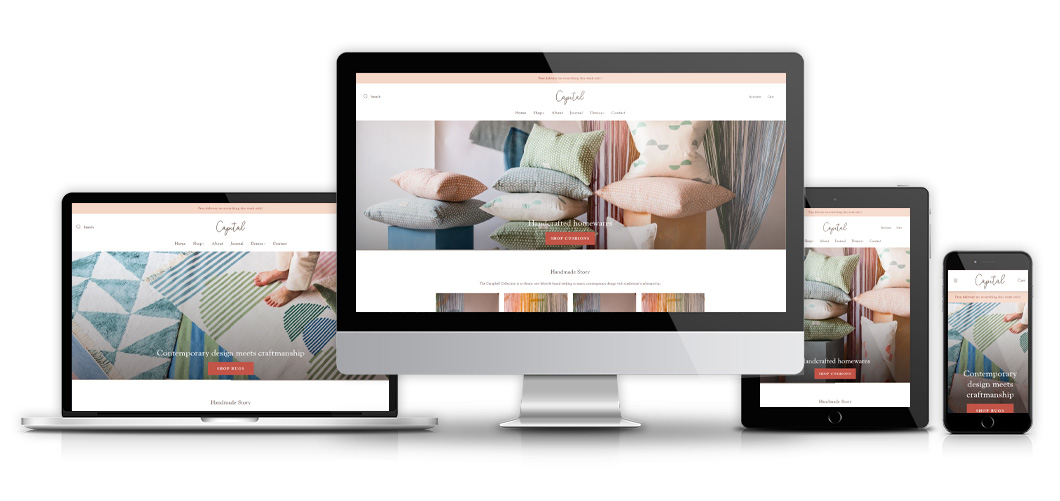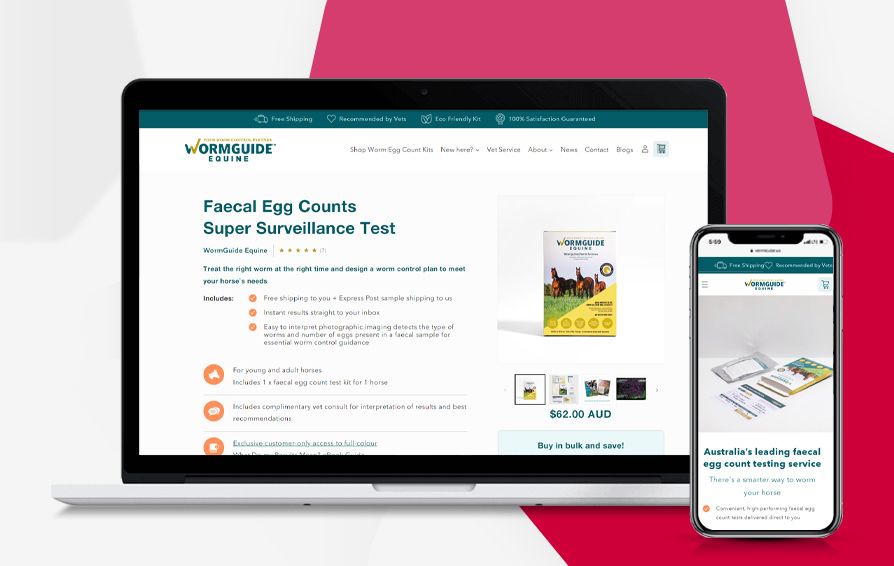I hope you enjoy reading this blog post.
If you want to discuss your website, we're here to help! Talk to Johannah.

How to launch your E-commerce business
Launching any business is full of tasks but to launch an e-commerce business is that much harder as there are more details to be considered.
These include inventory, product descriptions, refund policies, shipping, offers, customer service, great product photography, packaging, abandoned cart communications, up-selling to name a few,.
Not being prepared is a recipe for disaster which is why I’ve used all our client experiences to create a 7-point list to help you consider the marketing launch side of your new online store.
Prepare your social networks
Get your email marketing ready
Install Analytics
Do your Keyword research
Decide your KPI’s
Know your shipping strategy
Plan your launch promotion
1. Prepare Your Social Networks…..
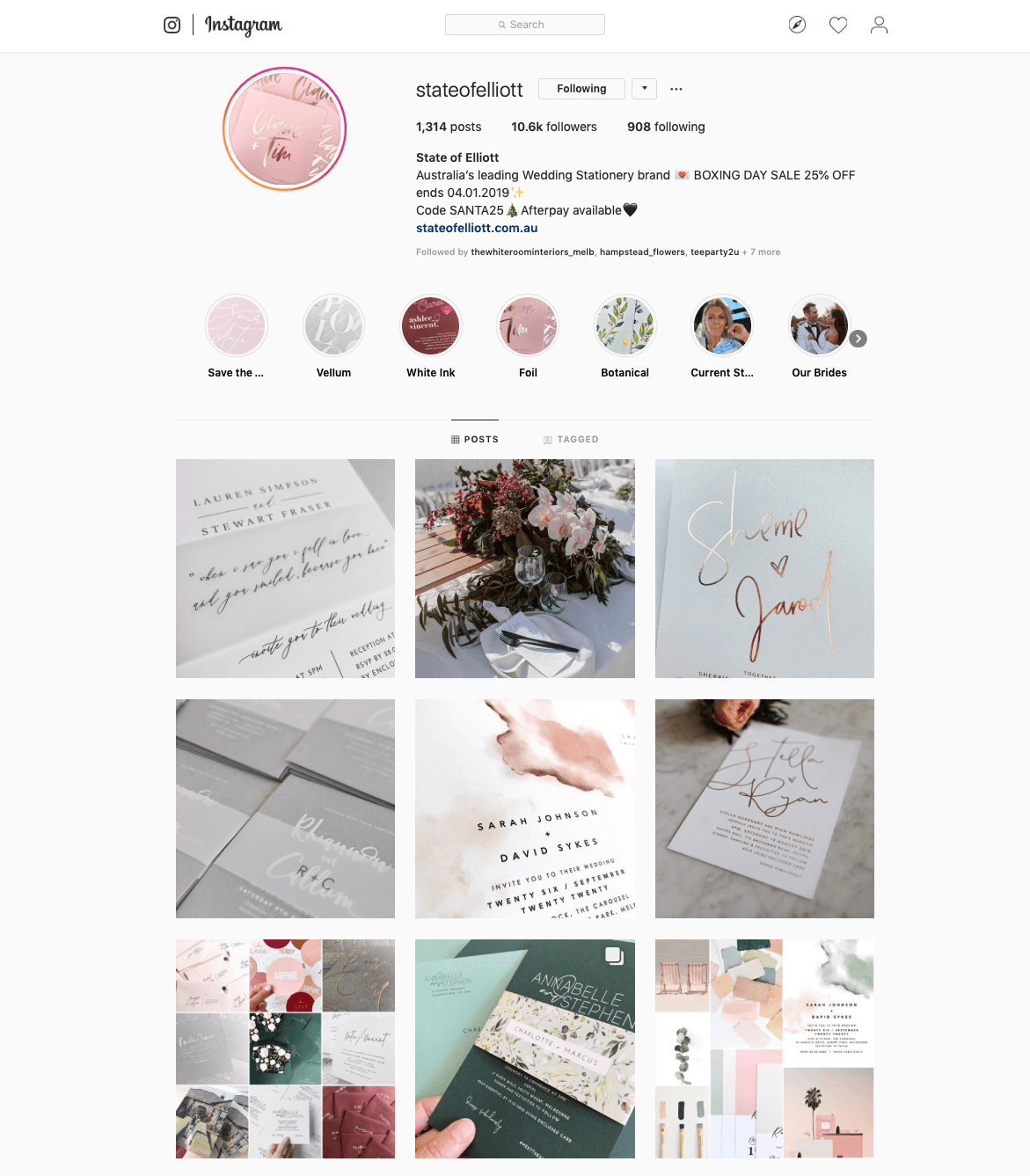
PIC: from one of our clients who has an amazing brand aligned Instagram page. Sarah links the promotions with her products and time of the year very successfully. Her feed is here and her online store is here
- Secure your social handles
- This is really important from a brand perspective and ideally you would do this when you have registered your domain name and business name. You do not want it to be different as that makes life confusing for your customers.
- Choose the right platform
- Your product and audience will determine the best social platform for you. Consider where your target market hangs out.
- Set up your profile with great pics
- Use your brand guidelines and keep it consistent.
- Where possible get professional photo’s taken to make a great first impression
- Create a content calendar plan
- Mapping out your themes for posting will help with content creation and your feed will look fabulous from a brand perspective. Consistency is a great way to build followers and trust.
- Link the tracking codes to your website so you monitor which performs the best
- Consider which to integrate as an additional sales channel. You may wish to test one first or all at once. Each platform has a slightly different audience so best to create a strategy for each. Could be less burdensome to test the best one first, track effectiveness before launching into a second. (see our links below to our trusted suppliers if you wish to outsource this task)
- We often observe, very importantly that you need to start your marketing as early as possible to build a pre-launch audience. Using Social is a very cost effective way to do this. Blogging and sharing your ‘brand’ voice and value to gain a following is highly beneficial so that when you launch you have an audience watching.
2. Get Your Email Marketing Ready…..
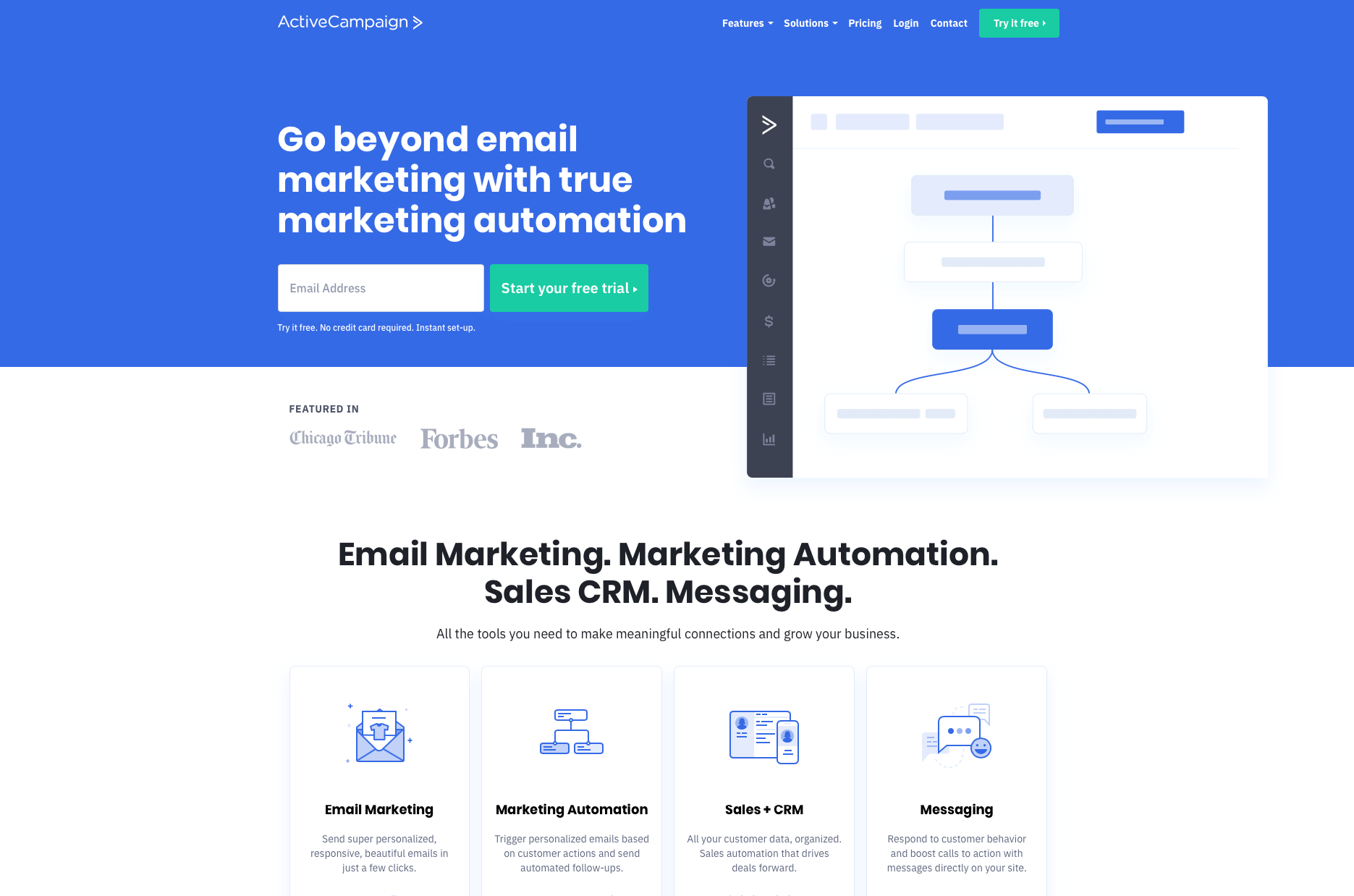
- Choose your email provider
There are many providers out there that have free accounts with basics. Here are a few, some free and some paid: - Design email communications and a newsletter template
- Think about the audience and what they really want to know. A newsletter is not about selling products directly, tell stories, build trust, solve problems while also promoting offers
- Plan your calendar
- Create a range of topics to share that coincide with what is relevant to your target audience life, in the news, relates to times of the year. I’ve made a full list of some dates for you here.
- Consider the customer process emails, what they look like and content to make you stand out. These can be automated and can include:
- Welcome series
- E-receipts
- Abandoned cart notifications
- Order confirmation
- Shipping notifications
- Order review request
3. Install Analytics….
Analytics are important to set up from day one. This data will give you valuable insight into your visitors and customers, their activity on your site and what is working well and what needs improvement.
If you use Shopify as your online store platform it has its own set of analytics reporting built in, but we suggest you also install Google Analytics. There are plenty of other options in the market but Google Analytics is one of the most well-known and popular analytics tools.
Whether you are starting up a business or thinking about your current digital marketing, give us a call.
We can help.
4. Do Your Keyword Research…..
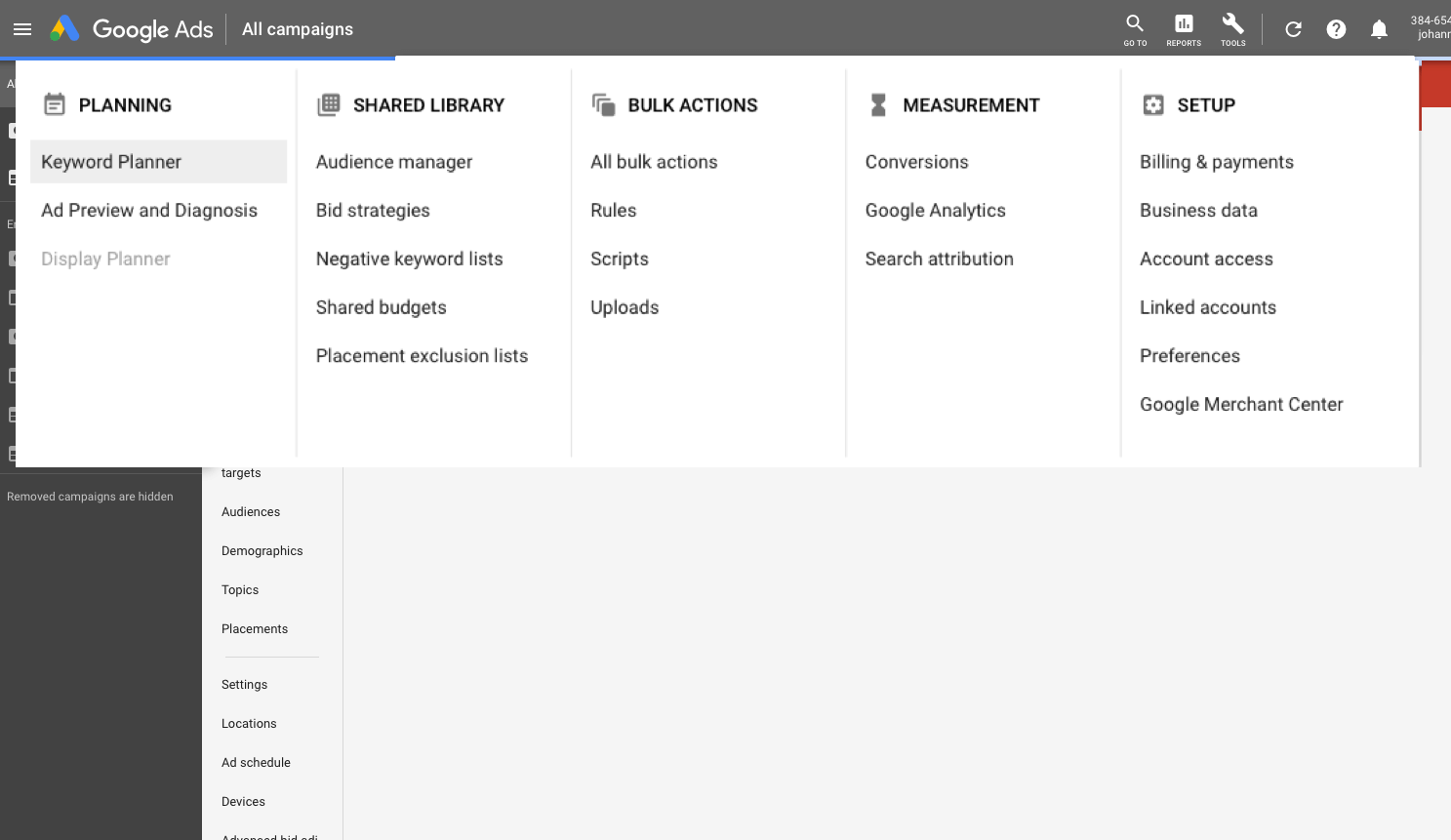
The preparation for this task is all around what do you want to be found for? Another way to consider prepping your site and product pages is to answer this question What will your customer be using as the phrases or key words in Google to find your products? You can also use the search bar in Google that predicts what you are searching for as broad guessing but for accurate data you will need a Google Adwords account. Within the dashboard once logged in (top nav Tools) you can use the Keyword Planner to find exact statistics on what phrases people are using to find your products.
- If you use Shopify as your online store platform it has its own SEO fields at the bottom of each product page to be completed. If you use WordPress / Woo Commerce you will need to add an SEO plugin such as Yoast, it one of the most well-known and popular SEO tools.
- Check Page Titles
- Check that page titles are appropriate and optimised for search. They should include key terms and be formatted correctly.
- Check Meta Descriptions
- Ensure that all media elements on your site such as your page images or product images have meta descriptions and titles. These should be relevant to your content and descriptive.
- Check URLs
- Check that all of your URLs are simple and relevant to the page.
5. Decide Your KPI’s….
- Starting a business it is important to know your numbers. Such as:
- How much does my product cost, per unit, landed to customer front door?
- What are the true shipping costs. This means you need to include, all fulfillment components, such as staff related picking and packing costs, software, postage, packaging etc.?
- What are your merchant processing fees?
- Set yourself very specific revenue goals, down to daily numbers, this helps you understand what activity you need to do to achieve the sales goals and will help with testing what sales tactics, channels work more successfully. Your product may have an expiration date, so moving product by set dates will be vital. You don’t want to be stuck with unsellable inventory.
- Look for ways to cut costs, as your sales volume increases you maybe able to negotiate raw material bulk discounts or better shipping rates.
6. Know Your Shipping Strategy….

- Online Store Packaging
- Unboxing has become an opportunity to surprise and delight your customer, an opportunity to make a great first impression. A UK packaging company did a survey and found that 20% of packaging was not a good fit for the product, and 15% used too much packaging. Also 7% of products arrived damaged as a result of inappropriate packaging. This is a vital part of your launch. Some other useful information from this survey to help you with your online store packaging is:
- appropriateness of outer packaging size
- durability of packaging
- ease of opening
- amount of packaging materials used
- recyclability of packaging
- ability to use packaging for returns
- use of branding
- Unboxing has become an opportunity to surprise and delight your customer, an opportunity to make a great first impression. A UK packaging company did a survey and found that 20% of packaging was not a good fit for the product, and 15% used too much packaging. Also 7% of products arrived damaged as a result of inappropriate packaging. This is a vital part of your launch. Some other useful information from this survey to help you with your online store packaging is:
- Shipping options
- Make shipping as easy as possible with a couple of options that make the customers life easier.
- Shipping costs and times
- Be clear about these so that you manage a customers expectations, including tracking.
7. Finalise the Launch promotion….
- Running a giveaway is a great launch marketing tactic to get traffic and subscribers quickly. Giveaways have the added benefit of increasing your brand presence and product visibility especially when launching. Building an email list gives you a group of warm leads to work with, making the sales process much easier. Your first product reviews will be useful for many platforms so the more of these you get while in the early days the better.
- You can provide first-time visitors with a discount coupon or voucher when they first land to use at checkout consumers can help boost sales.
- Create a plan that includes your chosen social platform.
- Get media
- You may have an opportunity to get media depending on your personal story and how it relates to the launch of your product.
- It could be beneficial to delay your launch or speed it up to leverage off what is topical or in the news.
- Plan the launch and first impressions.
- You only get to launch once so make it count; first sales, first customer interactions, first social engagement, these all count.
- Prepare for mistakes as things will not go to plan! This can include a ‘make good’ message / gift or a clever ‘404’ page on your website.
- Affiliates / Partners
- You can investigate partner and affiliate marketing to boost your brand presence by offering affiliate marketing options and partnering with other online retailers.
- You can offer bloggers who share your target audience a free sample of your product in exchange for reviews. If you’re selling products on Amazon, one easy way to gain consumer respect and confidence (and reviews) is to ask for feedback. Include a card with each product that asks for an honest review and provides contact information for your company
So there you have our 7 steps to launching your Ecommerce business.
You may need some support and so here are our trusted partners to help you launch right.
Active Campaign Experts – Jovana & Corey at Bumper Leads
Product photography – Fi at Fi Mims Photography
SEO – Declan at iFormat
Ad Words / Remarketing / Google Shopping – Declan at iFormat

Johannah Barton
Johannah is founder and owner of Confetti Design, a leading Melbourne Shopify Agency. Her extensive background in fashion, interior design, sales and marketing contributes to the Agencies great ability and reputation. She creates content that helps small businesses navigate the online space helping them to consider their website as a sales tool.
Read more
